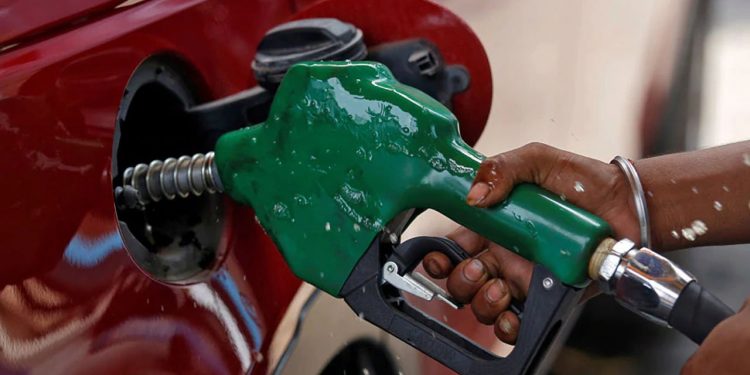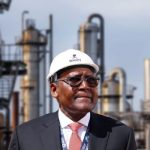Pump prices of petrol in many parts of Nigeria have fallen below ₦900 per liter following a ₦40 reduction in the ex-depot price by the Dangote Petroleum Refinery. The development, which began taking effect on June 30, 2025, has led several filling stations, particularly in Lagos and Ogun States, to adjust their prices, offering some relief to consumers and business operators affected by months of fluctuating fuel costs.
Findings across major cities revealed that most stations now sell petrol at prices ranging between ₦875 and ₦890 per liter. While a few outlets still maintained prices at ₦900 or slightly above as of Sunday, the broader trend indicates that many have now adopted the new pricing structure.
Regional Price Adjustments
MRS Oil, a leading distributor of Dangote petroleum products, was among the first to respond, slashing its Lagos pump price from ₦925 to ₦885. Across Nigeria, the adjusted retail prices vary slightly based on region:
- South-West: ₦895
- North-West and North-Central: ₦905
- South-South, South-East, and North-East: ₦915
The price cuts follow Dangote Refinery’s decision to reduce its ex-depot price from ₦880 to ₦840 per litre. Confirming the development, Dangote Group’s spokesperson, Anthony Chiejina, told our correspondent that the change took effect on June 30. This adjustment comes after a recent hike in April, when geopolitical tensions in the Middle East pushed crude oil prices near $80 per barrel. With hostilities between Israel and Iran easing, global crude prices fell, prompting Dangote to respond with a price revision.
Delayed Response by Marketers
Despite the refinery’s reduction, many marketers initially kept pump prices high last week—between ₦925 and ₦960—citing unsold older stock as the main reason. “We need to exhaust existing stocks. That is the right business thing to do because if a retail outlet owner loses ₦100 per litre, and he has to go back to the market to restock, he won’t be able to do so,” said Billy Gillis-Harry, National President of the Petroleum Products Retail Outlet Owners Association of Nigeria (PETROAN).
Wider Market Reaction and Gantry Price Competition
By Sunday, several depots had not only matched Dangote’s ₦840 ex-depot price but in some cases, even dropped below it. According to data from Petroleumprice.ng:
- RainOil, Pinnacle, Matrix, Emadeb, Swift, and Wosbab sold at ₦840 in Lagos.
- First Royal, Menj, and Aipec: ₦838
- Aiteo: ₦837
- A&E: ₦858
- NIPCO: ₦844
- MAO and Integrated: ₦839
Industry experts had projected that with a ₦840 gantry price, retail pump prices should naturally fall to around ₦890 or lower—a forecast that is now materializing.
Real-Time Price Adjustments Across Filling Stations
Our correspondent observed that filling stations along the Lagos-Ibadan Expressway adjusted their pump prices over the weekend in line with the new trend.
Examples include:
- AP and SGR: ₦880
- As-Sallam: ₦875
- Akiavic: ₦885
- SAO: ₦890
- NIPCO and Satellite: ₦900
- RainOil: ₦910
This is a notable shift from just three weeks ago, when petrol prices spiked to between ₦915 and ₦955 in most areas, and even as high as ₦960 to ₦980 in remote parts of northern Nigeria due to transportation costs.
The downward adjustment in petrol prices is directly linked to the fall in global crude oil prices. Brent crude dropped to around $68 per barrel, and West Texas Intermediate (WTI) stood at $66 per barrel as of Sunday—down from previous highs of over $77 and $73 respectively. These figures, according to Oilprice.com, reflect growing optimism in global markets as the threat of supply disruption from the Middle East eases.
For Micro, Small and Medium Enterprises (MSMEs) across Nigeria,the decline in fuel prices could ease operational costs and improve logistics efficiency. Transportation, power generation, and raw material movement are deeply tied to petrol pricing, making this drop a welcome development for businesses trying to stay afloat amid high inflation and volatile input costs.
Stay tuned for more updates










